What If History Happened?
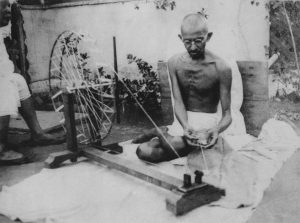
AI: Mahatma Gandhi, Nelson Mandela, and Martin Luther King Jr. Compared: Nonviolence 🕊️
Mahatma Gandhi (India): “In a gentle way, you can shake the world.” This quote embodies Gandhi’s belief in nonviolent resistance, where unwavering conviction could dismantle oppressive systems.
Nelson Mandela (South Africa): “No one is born hating another person because of the color of his skin, or his background, or his religion. People must learn to hate, and if they can learn to hate, they can be taught to love, for love comes more naturally to the human heart than its opposite.” Mandela’s quote highlights his commitment to reconciliation and the power of love to overcome hate.
Martin Luther King Jr. (United States): “The time is always right to do what is right.” King’s powerful statement emphasizes the importance of taking action for justice, regardless of the challenges faced.
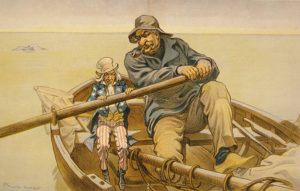
AI: Marcus Licinius Crassus, Robert Morris, and John Pierpont Morgan Compared: Financier 💰
Marcus Licinius Crassus, Robert Morris, and John Pierpont Morgan were titans of their respective times, synonymous with immense wealth and influence. Crassus, a Roman general and politician, amassed his fortune through ruthless real estate speculation and the exploitation of slave labor. Morris, the “Financier of the Revolution,” leveraged his mercantile prowess to secure crucial funding for the American war effort. Morgan, a dominant figure in American finance, played a pivotal role in consolidating industries and restructuring troubled corporations. These men, separated by centuries, navigated vastly different political and economic landscapes. Yet, their stories intertwine as examples of ambition, cunning, and the enduring fascination with the power of wealth.
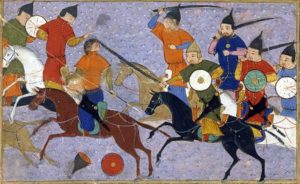
AI: Alexander the Great, Genghis Khan, and Tamerlane Compared: World Conquerers 🌍⚔️
Alexander, with eyes that mirrored the Macedonian sky, once declared, “There are no limits to growth, and there are no limits to human potential.” Fueled by an insatiable hunger for knowledge and glory, his conquests stretched from Greece to India.
Genghis Khan, the “Wolf of the Steppes,” growled a different truth. “Conquest is the only means to peace,” he rasped, his voice forged in the fires of tribal warfare. His empire cobbled together from warring Mongol nomads, became a juggernaut that reshaped the world.
Tamerlane, the “Iron Emir,” his gaze as hard as the deserts he ruled, offered a chilling perspective. “The proper punishment for rebellion is extermination,” he proclaimed. His reign was a whirlwind of violence and cultural destruction, yet beneath the carnage, he fostered a flourishing of art and science in his capital, Samarkand.

AI: Blackbeard, Sir Francis Drake, and Ching Shih Compared: Pirates 🏴☠️
Blackbeard, a showman with fire and fury, ruled through fear. Drake, a pirate with a crown’s blessing, plundered for queen and country. Ching Shih, the ruthless Pirate Queen, amassed an empire through cunning and power. Though their methods differed, they carved their names into legends with salt spray and steel.
“Blackbeard roared like a hurricane, his cutlass a streak of lightning,” they’d say in the taverns.
“Drake sailed with a queen’s favor, a map in one hand and a prayer in the other,” the scholars would whisper.
“Ching Shih,” the pirates murmured, “built her dominion on the backs of tigers, her mind as sharp as her blades.”
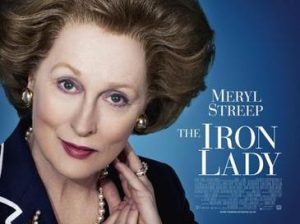
AI: 🍼😢🇬🇧 Meryl Streep, 🌼🍽️🦁🌅 Katharine Hepburn, and 🎭👒 Bette Davis Compared: Oscars Best Actress Nominations 🏆
Streep’s chameleon-like brilliance lets her embody any character. Hepburn brought wit and elegance to strong female leads. Davis blazed a trail for complex characters with her fierce on-screen presence. All three redefined what it meant to be a leading lady, leaving an indelible mark on cinema.
“Meryl Streep can take on any face, accent, or soul. It’s like watching a different actress every time.” – Dustin Hoffman (on Streep’s transformative ability)
“Katharine Hepburn: the embodiment of intelligent, strong women on screen, long before it was fashionable.” – Jane Fonda (on Hepburn’s portrayal of feminist ideals)
“Bette Davis? A firecracker. She wasn’t afraid to be vicious, vulnerable, complex – all in the same breath.” – Marlene Dietrich (on Davis’s fearless acting choices)
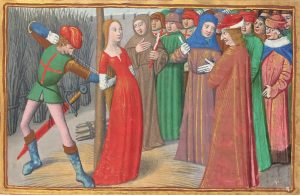
AI: 🛡️ Spartacus, ⚜️ Joan of Arc, and 🏜️ Lawrence of Arabia Compared: Hero 🌟
While Spartacus fought for individual freedom through fierce rebellion, Joan of Arc, driven by divine faith, led armies to national glory. Lawrence of Arabia, motivated by justice, navigated the complexities of war and diplomacy on foreign soil. Though separated by centuries and circumstances, all three defied the odds and left an indelible mark on their respective struggles.
“Spartacus: ‘I am Spartacus!’ – A defiant roar against oppression, echoing through the ages.”
“Joan of Arc: ‘Hear the voices, believe in the message!’ – A young woman’s unwavering faith guiding a nation.”
“Lawrence of Arabia: ‘No man is a failure who has friends.’ – A reminder that even in revolutions, unity prevails.”
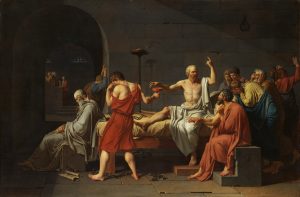
AI: 🀄️ Confucius, 🗣️ Socrates, and ⛪ Saint Augustine Compared: Philosophy
Confucius, emphasizing social harmony and filial piety, laid the foundation for Chinese ethics. Socrates challenged assumptions and pursued truth in ancient Greece through questioning and critical thinking. Saint Augustine shaped Western Christian theology by grappling with faith, reason, and free will. While their contexts differed, all three thinkers sought to illuminate the path towards a meaningful and virtuous life.
Confucius: “Respect yourself, and others will respect you.” (Emphasis on reciprocity and social order)
Socrates: “The unexamined life is not worth living.” (Importance of critical thinking)
Saint Augustine: “Love God and do as you please. For if you love Him truly, you will surely please Him.” (Emphasis on faith and divine love)

AI: 🐫 Zhang Qian, ⛵ Ferdinand Magellan, and 🌖 Neil Armstrong Compared: Explorers 🌏🚀
While millennia apart, Zhang Qian, Ferdinand Magellan, and Neil Armstrong shared a fire in their souls. Driven by an insatiable curiosity, they ventured into uncharted territories: Zhang Qian forging diplomatic paths across the Silk Road, Magellan circumnavigating the globe, and Armstrong leaving the first human footprints on the Moon. Each, in their way, pushed the boundaries of human exploration, forever altering our understanding of the world and our place within it.
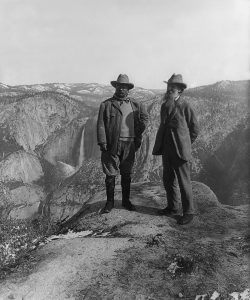
AI: 🧬📖 Charles Darwin,🌲🌄 John Muir, and 🐅🎥 David Attenborough Compared: Naturalists
Darwin, the meticulous observer: “Nature is not the work of a single hand,” he mused, his words echoing the meticulous notes in his journal, “but of many, many hands, modifying and improving on creations older than ourselves.”
Muir, the impassioned advocate: “Climb the mountains and get their good tidings. Nature’s peace will flow into you as sunshine flows into trees. The winds will blow their own freshness into you, and the storms their energy, while cares will drop away like autumn leaves.” His voice, booming with the spirit of the wilderness, resonated with a call to protect its grandeur.
Attenborough, the captivating storyteller: “The greatest show on Earth,” he declared, his voice seasoned with the wisdom of countless expeditions, “is right here under our noses. Every leaf, every insect, every twist in the fabric of life, a marvel waiting to be unveiled.” His words, woven into captivating narratives, painted a vibrant tapestry of the natural world.
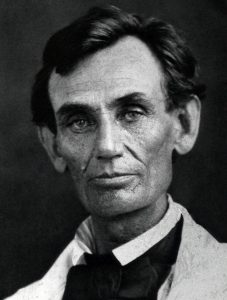
AI: Famous Speeches Compared: Cicero, Lincoln, and Churchill 🎙️
Cicero: “Quousque tandem abutere, Catilina, patientia nostra?” (“How long, Catiline, will you abuse our patience?”) – A fiery defiance against threats to the Roman Republic.
Lincoln: “Four score and seven years ago our fathers brought forth on this continent, a new nation, conceived in liberty, and dedicated to the proposition that all men are created equal.” – A poignant reminder of America’s founding ideals during a time of division.
Churchill: “We shall fight on the beaches, we shall fight on the landing grounds, we shall fight in the fields and in the streets, we shall fight in the hills; we shall never surrender.” – An unwavering declaration of resistance against tyranny, echoing across a war-torn world.

AI: 🛠️🚂🌉 Isambard Kingdom Brunel, 🚗🏭🔧 Henry Ford, and 🚀⚡🛰️ Elon Musk Compared: Titans of Engineering
Brunel: “The world is a canvas, and I am merely its artist. With a bridge of iron and a tunnel of stone, I shall paint it with the audacity of steam and the grace of progress.”
Ford: “Cars are not just about speed or luxury; they are about freedom and opportunity. I dream of a world where every family can own a vehicle, and the open road beckons them towards a brighter future.”
Musk: “Innovation is not just about tweaking existing ideas; it’s about leaping across chasms, colonizing new worlds, both literal and metaphorical. We must push the boundaries of what’s possible, even if it means defying expectations and embracing the unknown.”

AI: 🧙♂️ Tolkien, 🤡 Swift, and 🏰 Malory Compared: Fantasy, Satire, and Arthurian Romance
J.R.R. Tolkien’s profound world-building is evident in his statement, “Fantasy is escapist, and that is its glory. If a soldier is imprisoned by the enemy, don’t we consider it his duty to escape?”
Jonathan Swift’s satirical lens on society shines through in his words, “Satire is a sort of glass, wherein beholders do generally discover everybody’s face but their own.”
Sir Thomas Malory encapsulates the essence of chivalric ideals with the timeless quote, “For love is so strong, paramour, in this world, that he may suffise that is hurte with love, to be helped with other love.”

AI: ⛪ Cardinal Richelieu, 🦅 Bismarck, and 🕶️ Kissinger Compared: Essence of Statecraft
“The art of statecraft,” Cardinal Richelieu once mused, “lies not in crafting treaties, but in weaving a web of interests so intricate that none dare break a single thread.” Centuries later, Otto von Bismarck echoed this sentiment: “Politics is the art of the possible, the sausage-making of compromise where ideals must yield to realities, however grubby.” Henry Kissinger, the architect of American realpolitik, echoed the sentiment: “Statesmanship is the art of the possible.” In these three pronouncements, whispered across epochs, lies the essence of statecraft – a ruthless pragmatism tempered by an exquisite touch. In this Machiavellian ballet, power and prudence must dance in intricate harmony. Through this lens, we must examine the legacies of these three giants of power: Richelieu, Bismarck, and Kissinger.
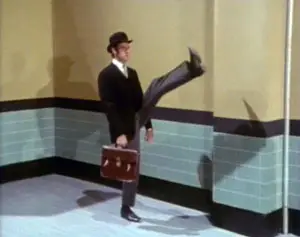
AI: 🎭 Ovid, 🎯 Jane Austen, and 😂 John Cleese Compared: Wit, Satire, and the Human Condition
Though separated by centuries, Roman poet Ovid, novelist Jane Austen, and comedian John Cleese all share a sharp wit. They use humor to expose societal flaws, nudge readers towards introspection, and leave audiences chuckling while contemplating life’s complexities.
Ovid: “Love is always wanting what it cannot have.” (Metamorphoses) – A timeless truth about desire, explored with wit in his mythical tales.
Austen: “It is a truth universally acknowledged, that a single man in possession of a good fortune, must be in want of a wife.” (Pride and Prejudice) – Social satire with a wink, dissecting the marriage market of her era.
Cleese: “Nobody likes being bossed. That’s the root of most unhappiness.” (Fawlty Towers) – Cleverly absurdist humor, highlighting the universality of human frustrations.
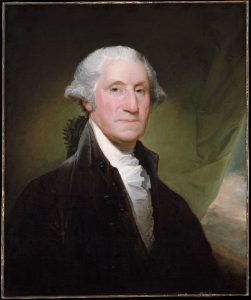
AI: 🏯 Qin Shi Huang (Legalism), 🦅 Augustus (Roman Empire), ⭐ George Washington (Democracy), and 🔨 Vladimir Lenin (Communist) Compared: Each leader inherited a nation in crisis and radically reshaped its government, but their methods and the systems they built were profoundly different. 🌐
Qin Shi Huang, the first emperor of China, unified warring states under the philosophy of Legalism, emphasizing strict laws and harsh punishments.
Augustus, Rome’s first emperor, ushered in an era of relative peace and prosperity after a period of civil war.
George Washington, the United States’ first president, led the fight for independence and helped establish a fledgling democratic republic.
To All Workers, Soldiers and Peasants. The Soviet authority will at once propose a democratic peace to all nations and an immediate armistice on all fronts. It will safeguard the transfer without compensation of all land—landlord, imperial, and monastery—to the peasants’ committees … Long live the revolution!
— Lenin’s political programme, October 1917
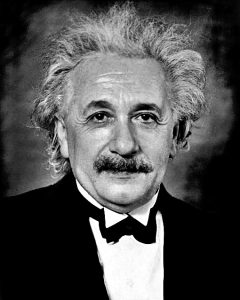
AI: ⚙️ Archimedes, 🍎 Newton, and 🌌 Einstein Compared: Titans of Physics 🧠
Archimedes:
“Eureka! (I have found it!)” – This exclamation is famously attributed to Archimedes as he discovered the principle of buoyancy while taking a bath.
Isaac Newton:
“What we know is a drop, what we don’t know is an ocean.” – This reflects Newton’s humility and acknowledgement of the vastness of knowledge yet to be discovered.
Albert Einstein:
“The most beautiful thing we can experience is the mysterious. It is the source of all true art and science.” – This speaks to Einstein’s awe and reverence for the unknown and his belief that the pursuit of knowledge is driven by a sense of wonder.

AI Rockets Between 1924 and Today: A Journey Through Innovation
“The rocket will not only conquer the Earth, but also space,” declared Sergei Korolev, channeling the spirit of ambition and possibility that fueled the rocket revolution of the 20th century and paved the way for humanity’s first steps beyond our planet.
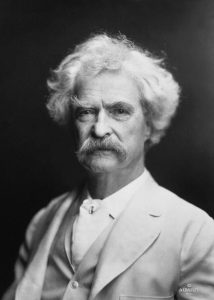
AI Political Humor Between 1500 and Today: A Journey Through Time
“Against the assault of laughter, nothing can stand,” Mark Twain proclaimed, highlighting the enduring power of political humor to expose hypocrisy, unite people, and even topple regimes, as it has throughout history. Political humor has evolved over the centuries, reflecting the changing social, political, and cultural landscapes of different eras. From the satirical wit of Renaissance playwrights to the scathing commentary of modern-day comedians, political humor has consistently served as a powerful tool for social commentary, challenging authority, and sparking change.

AI Cars between 1885 and Today: A Journey from Horse-drawn Carriages to Self-Driving Vehicles
“Put the world on wheels,” Henry Ford famously declared, capturing the ambition and democratization that his automobile brought to the 20th century, forever changing the way people lived, worked, and explored. The first automobiles were steam-powered and three-wheeled, while today’s cars are four-wheeled and powered by internal combustion engines. Over the past 130 years, cars have undergone a remarkable transformation, becoming faster, safer, and more sophisticated.

AI Invention N-Z 2050-2250: A Glimpse into the Future
“We are a species that builds. We build civilizations, we build technology, and perhaps most importantly, we build knowledge. By 2250, our inventions will have woven themselves into the very fabric of our being, blurring the line between human and machine, and propelling us towards a future unimaginable even in our wildest dreams,” Carl Sagan predicted, offering a glimpse into the transformative potential of technology and the boundless future that awaits us.

AI Invention A-M 2050-2250: A Glimpse into the Future
“The universe is not only stranger than we imagine, it is stranger than we can imagine,” Stephen Hawking once remarked, hinting at the boundless mysteries and unimaginable possibilities that await us in the future of invention.

Best Top Music “Rock and Roll” 1956 to Today
“Rock and roll music, if you really want to feel it, if it really moves you, well then dance on!” – John Lennon, capturing the raw energy and infectious spirit that the Beatles injected into rock and roll, forever changing the landscape of music.

AI Top Passenger Airplanes between 1930 and today.
Passenger aviation has undergone a remarkable transformation since the days of the Boeing 247, the first modern airliner, which took to the skies in 1933. Today, passenger airplanes are marvels of technology, capable of carrying hundreds of passengers across continents in a matter of hours.

AI Top Fighter Airplanes between 1914 and today.
“I flew the F-15 in combat, and I can tell you, it’s a beast. It’s fast, it’s maneuverable, and it packs a punch. But nothing compares to the sheer exhilaration of pushing the limits, of breaking the sound barrier, of feeling the G forces press you down in your seat. That’s what it was like to fly the X-1,” – Chuck Yeager, reflecting on the evolution of fighter aircraft and the raw power of the X-1, a machine that redefined the boundaries of human flight.

AI: It is wrong that Star Trek would be on Exoplanets alone meeting characters. Make way for the large amounts of life-teaming intelligence Exomoons instead!
“To restrict our exploration to solely exoplanets would be a blatant disregard for the vast potential of exomoons,” Spock declared, his voice betraying a hint of Vulcan impatience. “These celestial bodies, bathed in the light of their parent gas giants, often harbor environments far more conducive to life than their terrestrial counterparts. Limiting our search to planets alone would be like searching for oceans on Earth while neglecting to explore the depths.”
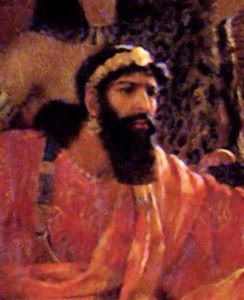
AI, Xerxes of Athens and Sparta would have had a significant economic and military impact on the city as he waged a different war.
“Had Xerxes not chosen the path of conquest, but instead focused his vast resources on forging a lasting alliance with Athens and Sparta,” Herodotus mused, “the economic and military landscape of the ancient world would have been forever altered. Imagine the combined power of these three mighty city-states, their armies invincible, their wealth unmatched. Such a union could have ushered in an era of unprecedented peace and prosperity, one that might have averted countless conflicts and reshaped the very course of history.”

AI: Scene at the Signing of the Constitution of the United States, a 1940 portrait by Howard Chandler Christy depicting Washington as the presiding officer at the Constitutional Convention in 1787.
Howard Chandler Christy’s 1940 portrait Scene at the Signing of the Constitution of the United States captures the momentous occasion of the Founding Fathers’ gathering in Philadelphia, immortalizing the signing of the document that would shape the nation’s future.

AI: The United States Democracy versus country or realm, or the future of the past, either actual or fictitious, will be compared — for example, United States Democracy versus Star Wars.
“While the American Republic boasts the noble ideals of freedom and liberty,” Darth Vader rumbled, his voice heavy with the weight of the Dark Side, “its foundations are built upon the shifting sands of self-interest and political manipulation. The Jedi, once its guardians, have dwindled in number and influence, leaving the Republic vulnerable to the seductive whispers of power. It is only a matter of time before its democracy crumbles, paving the way for a new order, one where order and efficiency reign supreme.”
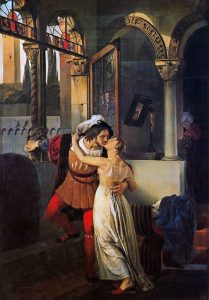
A.I., The 8 Ancient Greek Words for Love; Movies, Novels, Shakespeare, and Renaissance Art.
“A thousand kisses from thy lips to mine,
And to be buried in a sleep of death
Would be a life in death, to die indeed,
Whereat my soul should laugh and sing for joy,
And with the morn rise up to play again.”
William Shakespeare, Romeo and Juliet (Act 3, Scene 5)
This quote from Shakespeare’s iconic play captures the essence of Eros, a passionate and intense love that consumes the soul and drives individuals to extremes. It highlights the power of love to transcend even death, showcasing its intoxicating and all-encompassing nature.
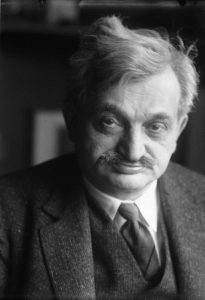
I have written an A.I. hypothetical match between Emanuel Lasker and all the chess championships from 1886 to 2023, and Lasker won them all!
“They call me Emanuel, but on the board, I am the eternal champion,” Lasker chuckled, a mischievous glint in his eyes. “Across time and circumstance, I have faced the best and emerged victorious. The chessboard is my domain, and there, my opponents are but fleeting phantoms, their strategies mere echoes in the vastness of my mind. The past is mine, the present is mine, and the future, I suspect, will be mine as well.”
